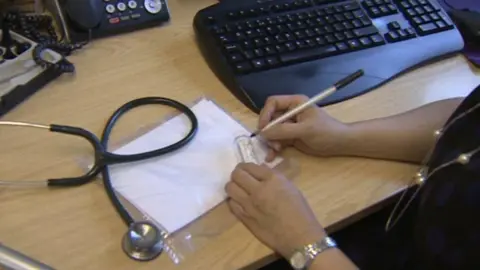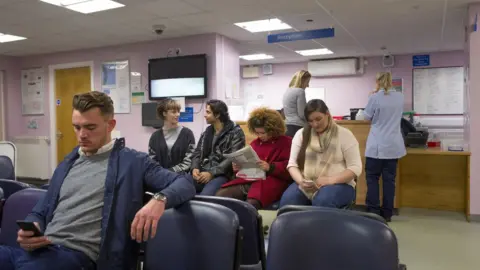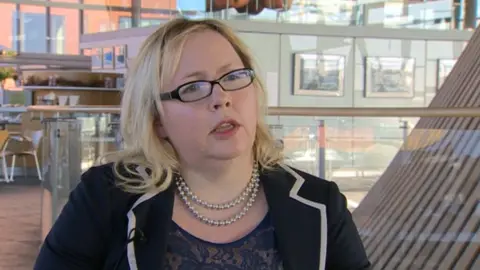GP closures in Wales force 46,000 to find new doctors
 BBC
BBCMore than 45,000 patients in Wales have had to find new GPs in the past five years after their surgeries closed, new figures show.
Last year alone, eight main practices and seven "branch" surgeries shut with about 18,000 having to move practices.
One woman who had to find a new GP when her local surgery shut said it was "appalling" elderly people were having to travel miles for basic services.
The Welsh Government said it had made progress in recruiting more GPs.
A spokesman added there was a UK-wide move toward larger, consolidated GP practices.
In February, the British Medical Association (BMA) warned that 74 surgeries in Wales were at risk of closure.
But according to the figures obtained by BBC Wales, 19 main and 28 branch surgeries have closed since 2013, with 46,700 patients forced to find a new surgery as a result.
The figures, published under the Freedom of Information Act, cover all health boards in Wales apart from Aneurin Bevan University Health Board, which did not provide data.
Last year's closures were the highest in the five-year period, with the BMA saying the closures put "extra pressure" on the system.

'The health service has deserted us'
 Getty Images
Getty ImagesWendy Lloyd-Jones, 70, of Cilan, Gwynedd, had to search for a new GP when the surgery she used in nearby Abersoch closed last December, despite a petition from local people against its closure.
Betsi Cadwaladr University Health Board said at the time its decision to close the surgery was made after taking into account the practice's difficulties and patient's views.
The North Wales Community Health Council later criticised the practice for its engagement with patients before the closure.
"I think it's appalling that elderly people have to go as far as Botwnnog for basic services," Ms Lloyd-Jones said.
"As an elderly population [here] we are more dependent than ever on the local health service which, of course, has deserted us."
Gwynedd councillor Dewi Roberts, who represents the area, said it had been a "huge loss" to an area with "basically non-existent" transport.
"It's part of the community, there's a relationship here between the doctors and the community. People are much more confident about coming to their local surgery," he said.
"Once they have to travel further afield it becomes a burden, they decide not to do that, they become worse and that becomes a burden on the social services or the A&E services in Bangor - it's a tragic situation."


Dr Charlotte Jones, chair of the BMA's GP Committee Wales, said surgeries were struggling to stay afloat due to problems recruiting and retaining doctors, the "sheer volume" of workloads, "under-resourcing" and "overwhelming bureaucracy."
She said it reflected the picture across the UK and the BMA was working with the Welsh Government and health boards to address these problems.
A Welsh Government spokesman said it was "working to recruit more GPs to Wales".
"Since the launch of our Train Work Live campaign, we have overfilled GP training places in Wales for the first time. We have also filled training places in areas that have been traditionally hard to recruit to," he added.
"As is the trend across the UK, in Wales we are seeing a shift towards larger sized GP practices, with a wider skill mix of health professionals, providing a greater range of health care locally."
